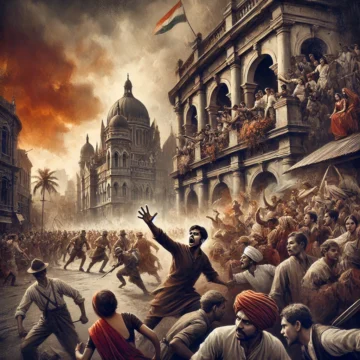Founded in 1925 by Dr. Keshav Baliram Hedgewar, the Rashtriya Swayamsevak Sangh (RSS) has significantly influenced India's cultural and political landscapes. Its commitment to Hindu philosophy and its extensive social services have been pivotal in shaping contemporary Hindu identity and nationalistic fervor in India's evolving socio-political fabric.
Tag: communal violence
Riots in Kohat and Forgotten Exodus: Kashmir Exodus 1.0
The riots in Kohat of 1924 and the 1989 exodus of Kashmiri Pandits share a legacy of communal violence under differing political regimes. This blog explores the catalysts, impacts, and enduring lessons of these events, shedding light on the complexities of Hindu-Muslim relations in India's fraught historical landscape.
Indo Pak War and Operation Grand Slam
Explore the pivotal Operation Grand Slam during the Indo-Pakistani War of 1965, an endeavor aimed at altering the military and political landscape in favor of Pakistan. Delve into the roots traced back to the tumultuous Partition of 1947, shedding light on how historical tensions have shaped enduring Indo-Pak relations.
Radcliffe Line: Elusive Boundary That Crafted Chaos
Discover the harrowing impact of the Radcliffe Line, a boundary that didn't just separate geographies but altered destinies. As we delve into personal accounts and political maneuvers, this blog explores how hastily drawn borders reshaped the Indian subcontinent, turning neighbors into refugees and setting the stage for ongoing conflicts between India and Pakistan.
Direct Action Day 1946 and Partition of India
Direct Action Day on August 16, 1946, profoundly reshaped the trajectory of India's independence, leading to Partition. The events, intended as peaceful, were marked by orchestrated violence against Hindus, exposing deep religious divides. This pivotal day set the course for creating Pakistan, igniting lasting impacts on regional and global stability.





